For the last three years I have been traveling to Portugal to photograph its beauty.
I have been to Lisbon a numerous times, captured Porto on a rainy weekend, been to the university of Coimbra, passed through Aveiro, and wined and dined in Alentejo, the so-called Tuscany of Portugal.
The country is fascinating and has all the elements to make it (if not already) as one of the most desired and affordable destinations to travel this year.
It was only a matter of time for me to travel to The Azores Islands, (total of nine islands) which were created out of volcanic eruptions millions of years ago. The islands are located in the middle of the Atlantic Ocean, only one hour flight from Lisbon and five hours flight from Boston. The SATA airline, which has various routes, makes the Azores more accessible and closer than ever.
In previous posts, I mentioned my love for Portugal mostly thanks to its people and their desire to travel. The Portuguese are known for discovering and mapping the coasts of Africa, Canada, Asia and Brazil, in what became known as The Age of Discovery. Therefore, many of the Azores’ inhabitants are descendants of explorers who settled there several centuries ago.
Throughout the history of Portugal and with the restoration of Portuguese independence (1640) São Miguel, the biggest of the nine islands, was considered a central commercial base where ships crossing the Atlantic, stopped there for fuel. The island was sometimes considered as ‘The gate to Europe’.
In this island, which can be easily called Heaven on Earth or Paradise, I have found timeless natural beauty and timeless heritage sites.
Here are the ones not to miss;
* Lagoa das Sete Cidades:
The Lagoon of the Seven Cities is a twin-lake resort, Lagoa Verde (Green Lake) and Lagoa Azul (Blue Lake) are so called for the reflection of colour in the water; each side of the lake reflects the sunlight in different colours and shades and creates this beautiful sight. Even though technically it is considered as one lake (it is only divided by a narrow passage and crossed by a bridge) most refer to it in terms of two separate ones. They are located inside an inactive Volcano with a 12km perimeter.
As weather can be very tricky in the Azores, this lake (like others) can be hidden from sight when it is foggy. I had to return a second time to experience this view in full glory when it was sunny.
In 2010, the Sete Cidades Lagoon was voted as one of the Seven Natural Wonders of Portugal and became a sacred place in the Island.
* Lagoa de Santiago:
Here is a confession to make; the view of Lagoa de Santiago from Pico da Cruz, is one of the most remarkable sights I have ever seen. I had to take a short video with my iPhone as a proof to myself that I was actually there.
The ten minute walk from the parking lot all the way to the peak of the mountain and the vista point were easy to walk. Not even the luscious flora along the way prepared me to what I was about to see.
I was very curious to see and understand what my tour guide, Cecilia, referred as Paradise, or as The most beautiful place on Earth. ‘I consider myself very lucky’ Cecilia kept telling me, ‘because I live in Paradise and soon you will see what I mean’.
And indeed, it was a jaw-dropping experience. Lagoa de Santiago is one of the most beautiful natural sites, and words cannot well describe it.
* Lagoa do Fogo:
Lake Fogo or Lagoon of Fire, is located in the center of São Miguel in the crater of an extinct Volcano. This enormous lake with its clear waters, peninsulas and white sand beaches (in some of its parts), is classified as a Nature Reserve. I reached the vista point of Pico do Barrosa on a very windy day, but luckily a clear day with no fog.
This lake is the highest above sea level in São Miguel and one of the largest of the water-bodies in the Azores.
Driving through São Miguel’s many Volcanic craters and green mountains, I couldn’t help but think that this island can be the perfect backdrop for the movie set of Lord of the Rings.
On my second day, while I was visiting one of the churches, a group of men in colourful shawls and scarves, with back-packs on their backs, gathered outside the church in a circle and chanted some prayers. For a second, I thought someone was filming a movie and these men were actors, but apparently these Romeiros (Pilgrims) were following a tradition of walking for eight days across the island, from early morning till night. This tradition is taking place in the period of Lent, before Easter. These Romeiros carry backpacks, filled with food they get from families who host them and offer them a place to sleep during the night. (It is considered an honour for these families).
It was then when I realized that São Miguel is also renowned in terms of religious belief.
On my last day in São Miguel I stayed in Ponte Delgada, the biggest city in the island, where most of the religious monuments are located. The original plan was to have some free time to walk around and experience the city, but a meeting with Eduardo Elias from Turismo office of the Azores, turned this day to one of the highlights of my trip. Eduardo, who heard that I am originally from Israel, prepared a special tour following some important religious sites.
* The Holy Christ of Miracles:
We started with the Holy Christ of Miracles, which is located in the Convent of Our Lady of Hope, (in the church of Nossa Senhora da Esperanca). We were directed to one of the rooms in the lower level. At first, I was admiring the colourful flower ornaments around the room, but only then did I notice the image of the Lord Holy Christ of Miracles opposite the main altar and at the end of a blue Azulej tiles corridor. The glorious image of the Lord of Miracles is an impressive bust of natural size, representing Jesus as ‘Acce Homo’.
The image of the Holy Christ of Miracles is from the beginning of the 16th century and was given by the Pope Paulo the third to two ladies from São Miguel, when they went to Rome to ask permission to build the first convent of nuns in the island. It was first located in a convent in Vale de Cabacos near the sea, but since the convent was exposed to Pirates attacks, it was agreed to move the image of the Holy Christ of Miracles to the Monastery of Esperanca, where it is today.
Since 1700 there are celebrations in honour of the Holy Christ of Miracles which last for one week in May. During the second day of celebration, which is a Sunday, the people of São Miguel are showing their faith and devotion for the Holy Christ by walking the streets of the city, carrying the image of the Holy Christ of Miracles. This week is one, if not the most important week in Ponta Delgada. It is followed by celebrations, feasts and cultural events, and thousands of Azoreans fly from Portugal, Brazil, US, etc to participate in these celebrations.
and last, but not least was visiting the Synagogue Shaar Hashamaim in Ponte Delgada. I must admit that this visit was one of the peaks of my trip and brought some tears (of happiness) to my eyes.
* Synagogue Shaar Hashamaim:
We met with Dr. Jose de Almeida Mello, an Historian (who carries numerous honour titles) at the entrance of an old building in Rua do Brum. The domestic architecture of the building, the lack of any Jewish symbol didn’t prepare me to what’s inside. If I was by myself, passing this building on a regular day, I would never have thought that behind its doors there is the synagogue and the Hebrew temple of Ponte Delgada.
Dr. Jose Mello, who I fully admire, was appointed by the Israeli Community in Lisbon in 2003 as a co-ordinator of a committee which was responsible for the restoration and conservation of the synagogue. For the course of 12 years, he has investigated the history of the synagogue and took upon himself its restoration in order to turn it into a valuable and cultural patrimony of the city of Ponte Delgada.
The synagogue itself is hidden behind a wooden door. When the door is closed, nothing really hints that behind it, there will be the praying room, coloured light blue, with good natural light coming through two windows. In the north part of the room, there is the holy Torah with the prayer books inside.
Shaar Hashamaim is about to be opened soon to the public as a museum and a space for culture and tourism.
I encourage everyone who visits São Miguel to pay a visit to this museum, as a reminder of history, heritage and one person (Dr. Jose Mello) devotion.
Stay tuned for Part 2.

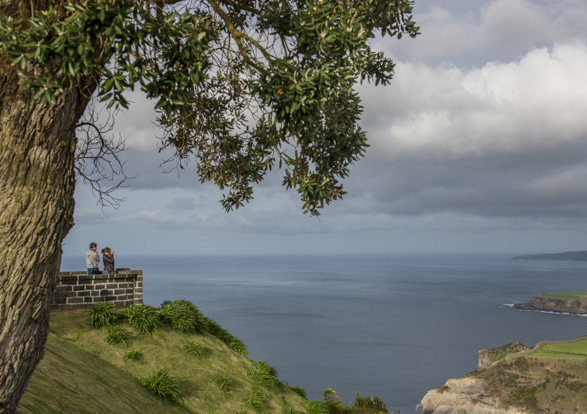
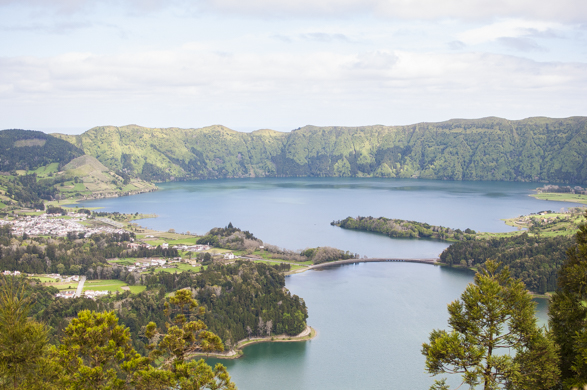
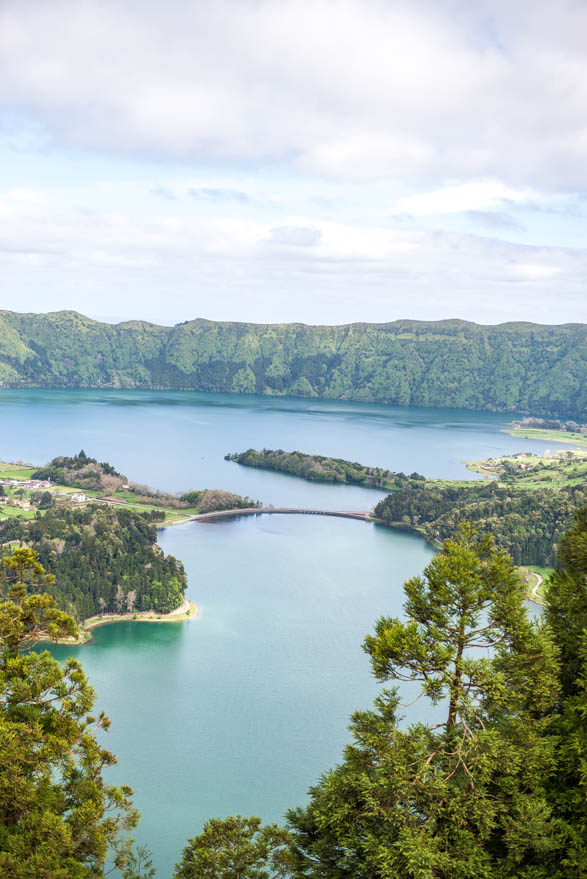
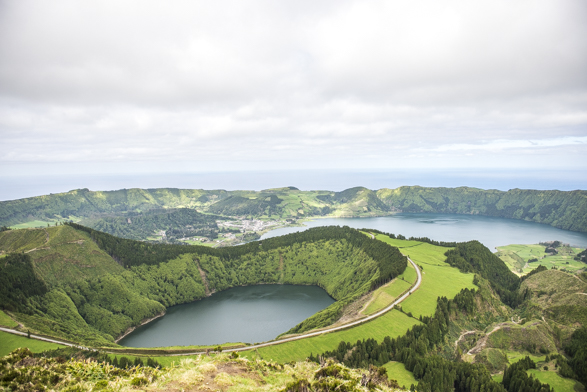
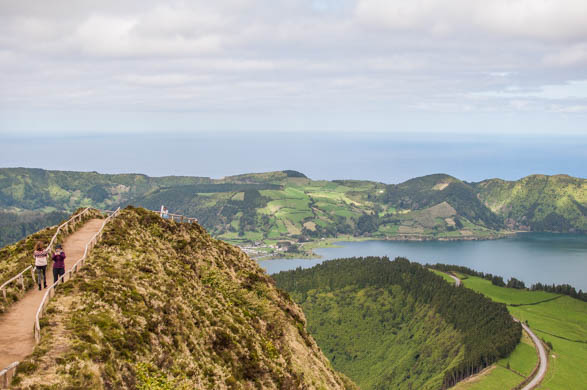
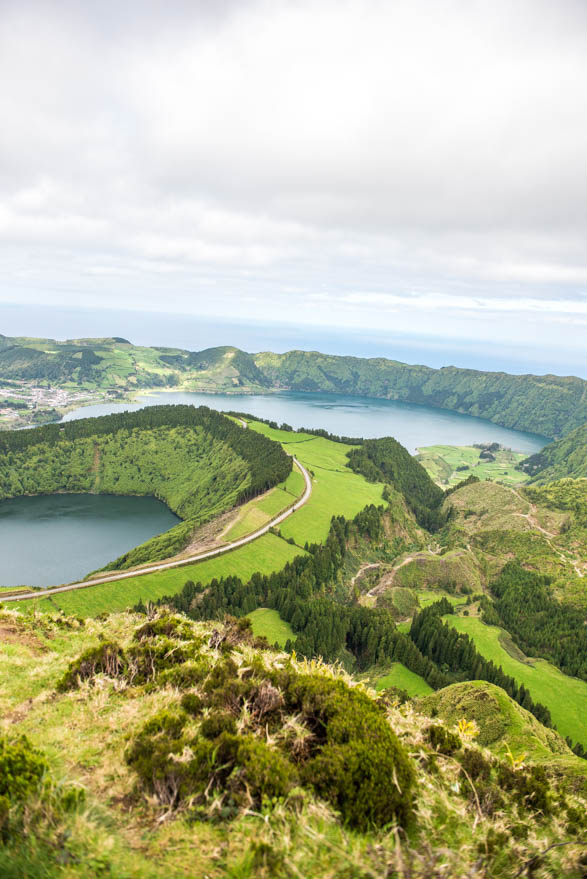
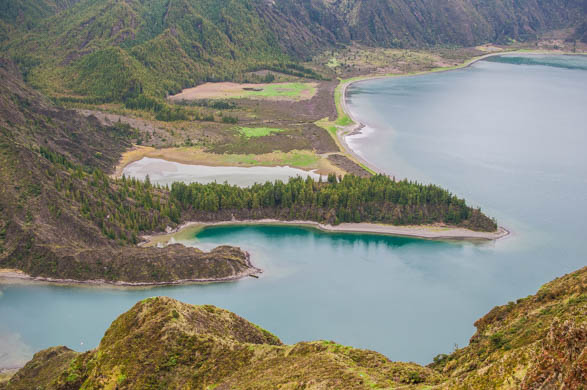
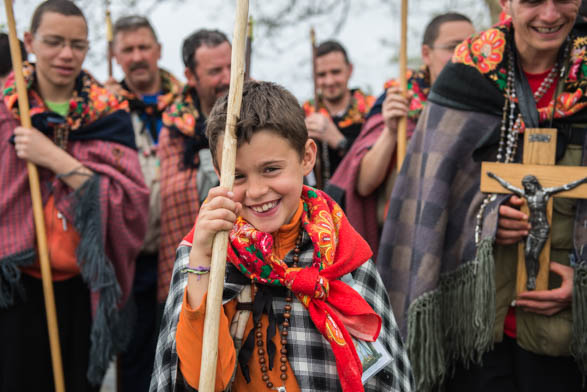

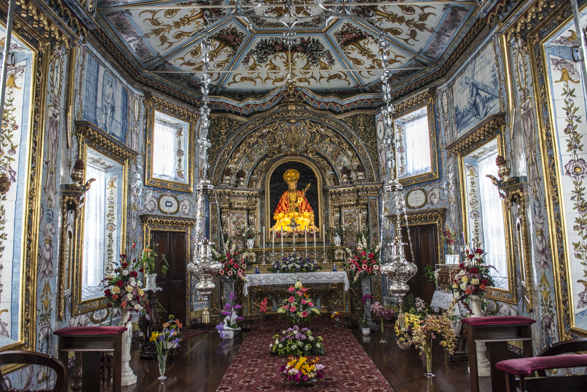
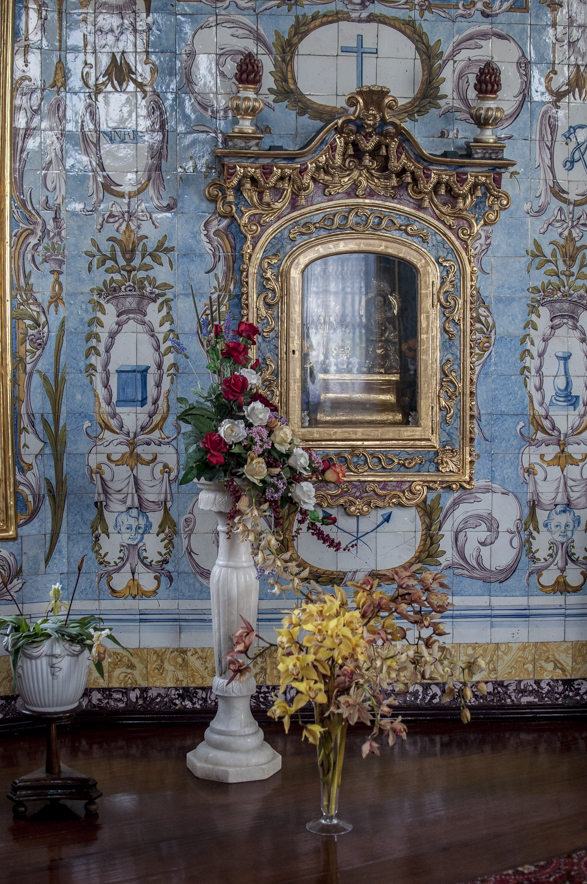
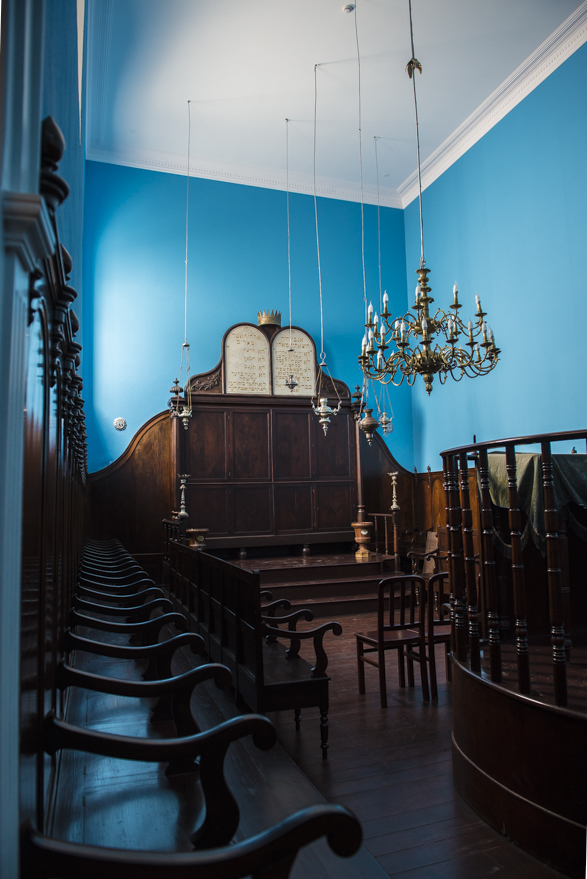
1 Comment
I am leaving on a cruise for Portugal in April. I enjoyed your story and images of part 1 but what happened to part?